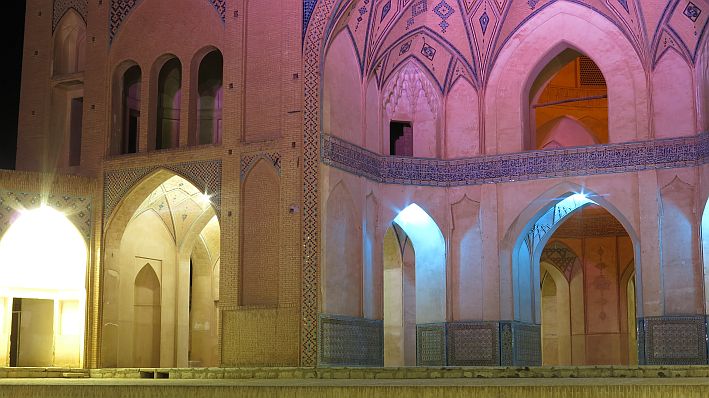
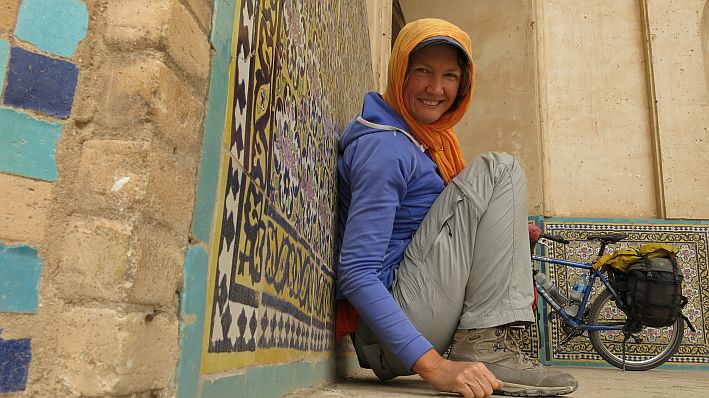
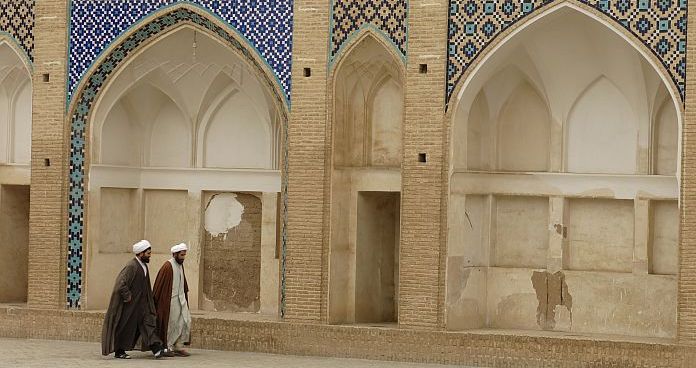
I arrived at the harbor in Bandar Abbas in the morning and was immediately treated as a special case at immigration. I was allowed to pass a long queue of people and was first to be cleared through customs. That is still always very embarrassing to me. The women were in one line, the men in another. But, instead of getting a stamp immediately, my passport wandered from the hand of one policeman to another. So, I waited at least another 2 hours until I finally received it back with all the right stamps. I very careful to watch where it was stamped, because there were hardly any blank pages in my passport and I expected many more visas for the countries ahead of me, which would all eventually need room for a stamp somewhere.
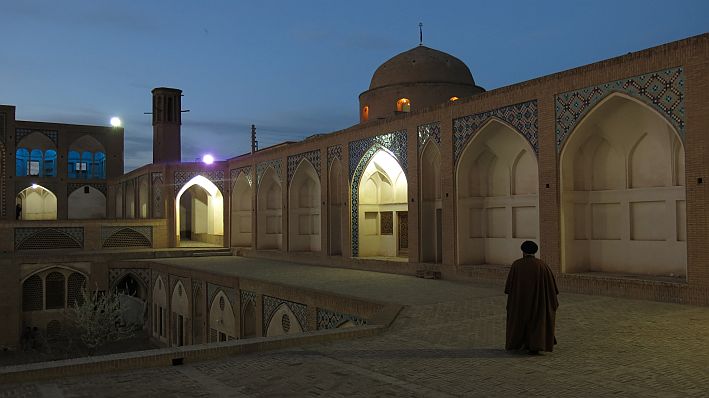
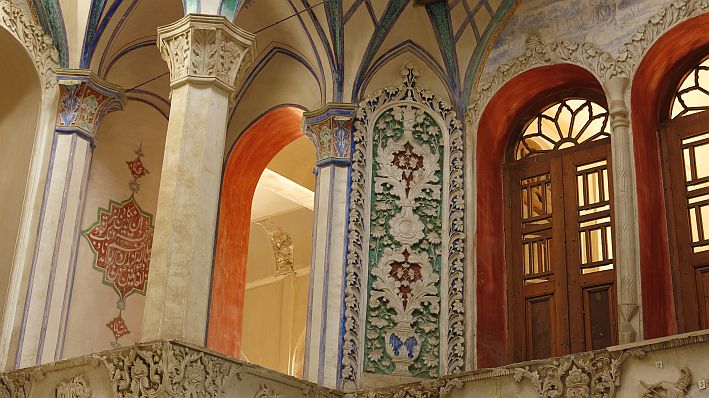
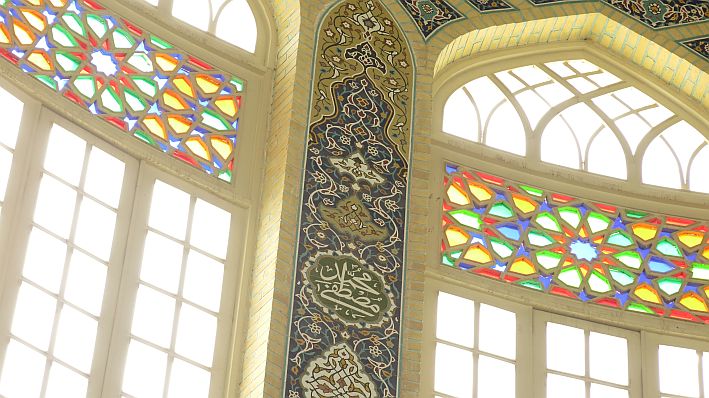
The logical connection from Bandar Abbas to Mashhad in northeastern Iran, near the border of Turkmenistan, would have been the connection through Kerman. Unfortunately, Kerman is an insecure area, so I didn’t dare go there alone. The other connection was on the highway to Yazd. Be the idea of being exposed to more than 1000 kilometers of endless diesel soot – no thanks! That, too, was out of the question. If I had taken the small roads, I would have been underway for months. I didn’t have time for that, because my visa for Uzbekistan was dated for the 5th of April.
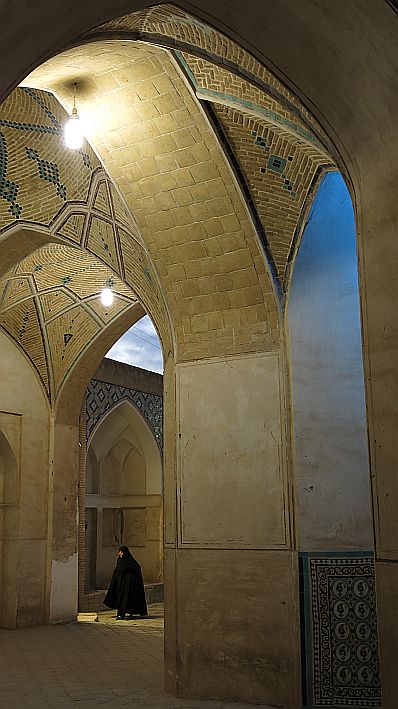
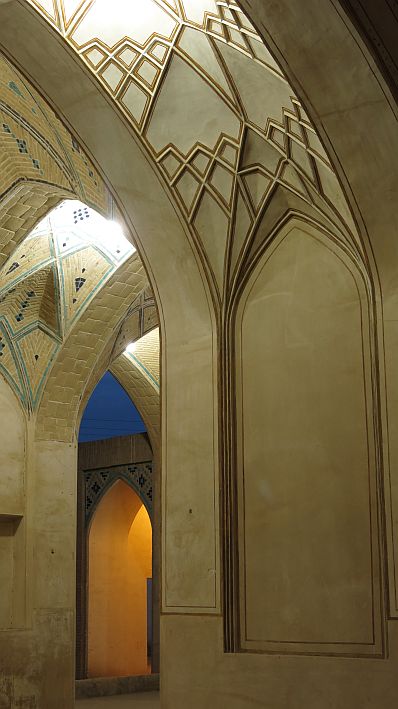
This time I took the train with a clear conscience and it took me to the north overnight. Even from here it was still a very long way to Turkmenistan. From the beginning, I had actually planned to go to Mashad through the desert to Nain, but I had seen enough desert already and I expected to see even more desert throughout Central Asia in future weeks. I had also heard from other cyclists that the route is very busy. Therefore, at the last minute, I changed my itinerary and bought a ticket to Kashan so that I could ride over the mountains from there to Mashad.
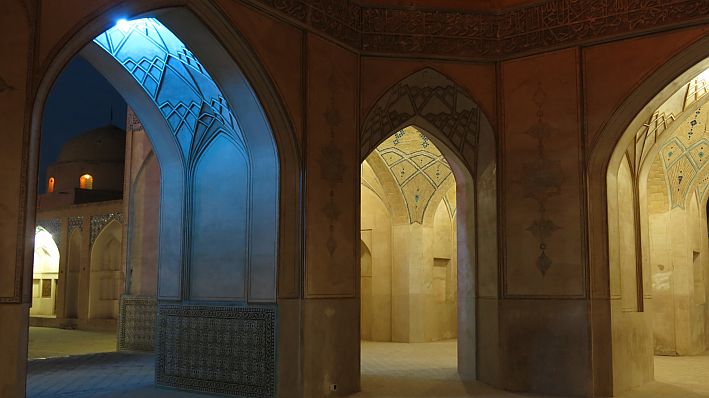
In the train compartment, I was sitting with another family and a lady who was traveling alone, who again bombarded me with questions. On top of that, I was told that, although she was my age, the lady who was traveling alone looked much younger than me. In my opinion, she was an extremely boring woman. The people in my compartment sympathetically let me know how sad it was for me because I had no children. What counts here is their own world — which consists of their family in the small radius in which they reside. Well, no wonder, it is the only world they know.
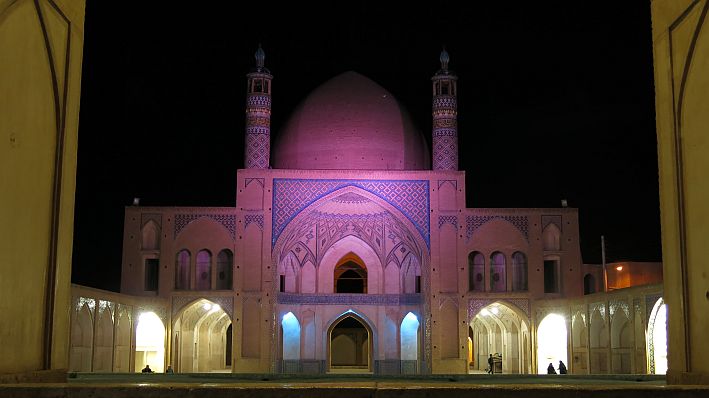
Sometimes, the way people ask questions can be very clumsy. And their curiosity is sometimes extreme. I believe they didn’t realize the extent of their interrogation at all.
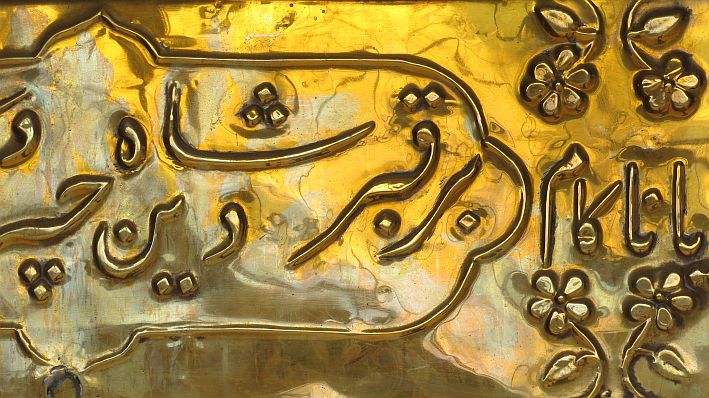
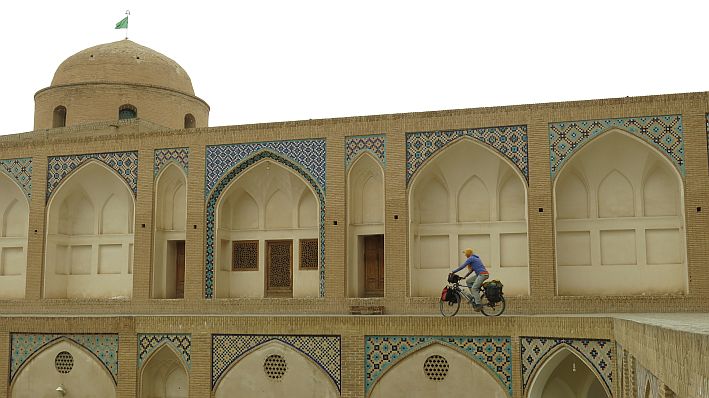
That night I almost suffocated in the train compartment. I couldn’t open the window because it was too cold for everyone else, even though the temperature felt like 30 degrees Celsius. It seems that the Iranians and other nations, simply do not need fresh air and I have never been able to understand their continuous fussing about the cold since I entered Turkey. Even in Oman, at 30 degrees, the Omanis told me that it was cold. I could somehow understand the Omanis, because a cold winter day in Oman is equivalent to an extremely warm summer day in Germany. But there are also icy cold winters in Iran, so I would think the people there would actually be accustomed to the cold.
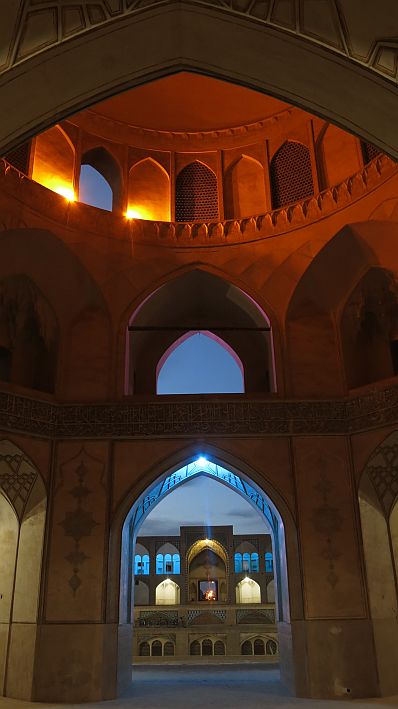
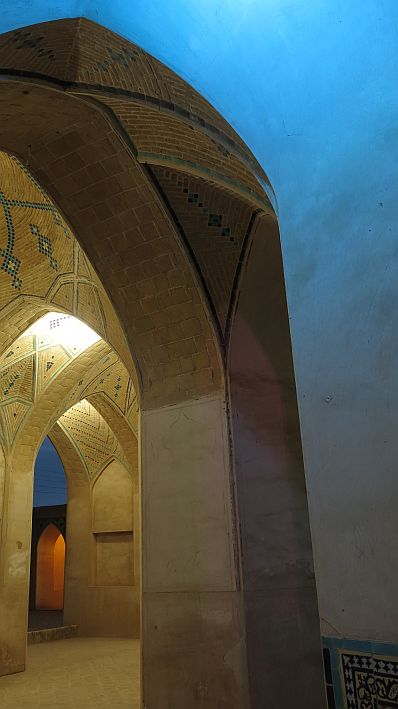
And so, even though I had been provided with a folding bed, another sleepless night went by. My back pain worsened each day — a signal that I had expected too much of my abilities over the last few days.
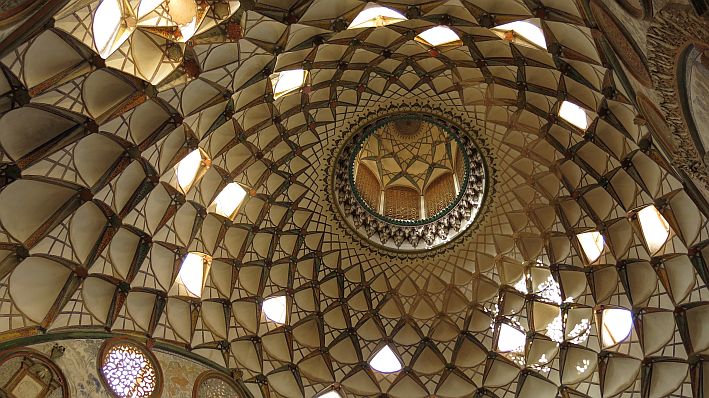
When I arrived in Kashan, I could think of nothing else but a hotel room where I could relax and get some much-needed rest. I thought about Stephan, the long-distance hiker, whom I had met in Erzurum in Turkey. At the time, I wondered why he voluntarily rested in a hotel in Erzurum for 2 weeks. Today, I can understand it very well, because that is exactly the way I also felt. After nearly 10 months, I was getting tired of traveling.
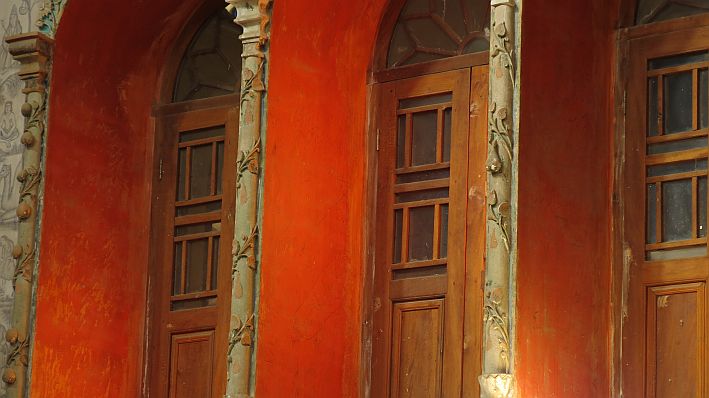
So I locked myself in a noisy dump of a hotel and didn’t leave my room until the next morning. When I was awakened for breakfast (by the way without being asked whether I wanted to be awakened or not), two men were already waiting for me. Again, without being asked, they immediately photographed me from all angles and then told me about all the places that I needed to see in Kashan. They asked me where I would go next and, out of sheer euphoria, completely forgot that I wanted to eat breakfast. Besides that, a lady had called to meet me for dinner that evening at six o’clock. (once again without being asked) No, please! Not this time, as an exception, no thank you. Privacy is something that Iranians simply don’t seem to understand. Sometimes, they give you the feeling that you belong to them.
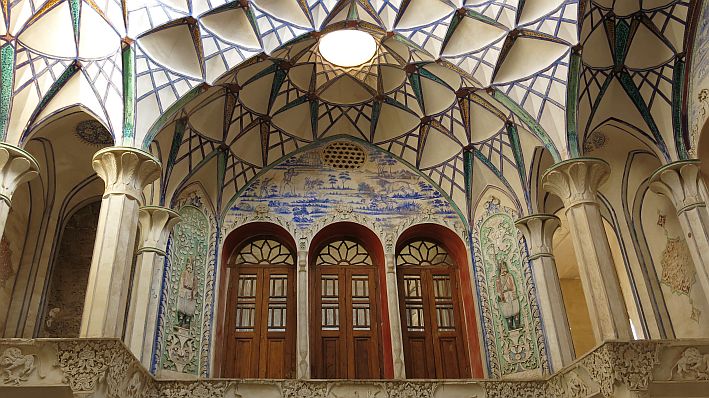
On the same evening, a 30-year-old guy annoyed me until late into the night. He wanted to spend the night with me in the room and knocked constantly on my door. I asked him if he would ask an Iranian girl the same question. At least he was honest and said no.
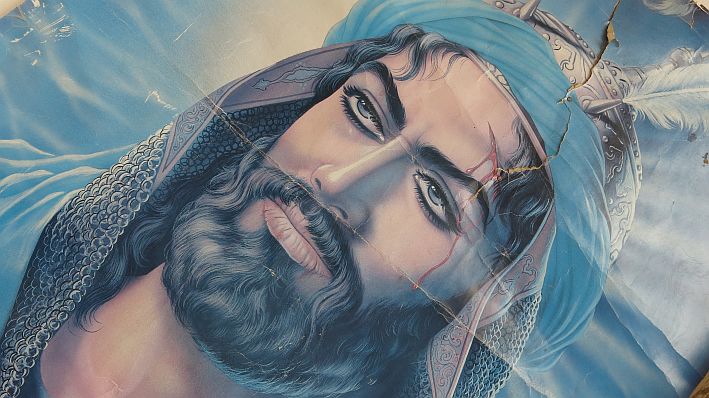
At eight o’clock the next morning, other people were already at the door to my room wanting something from me again. I’ll say in all honesty, it really bothered me.
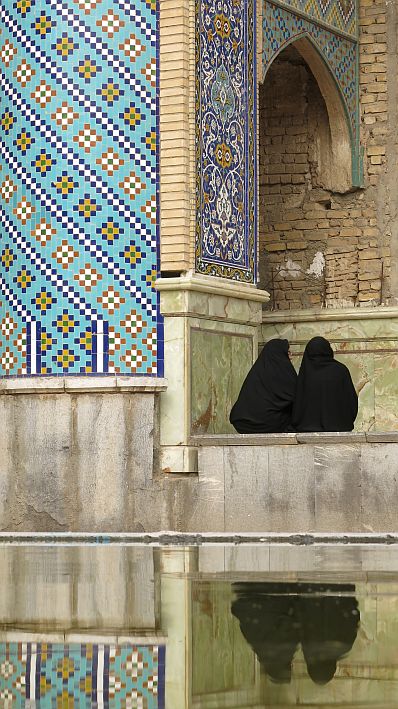
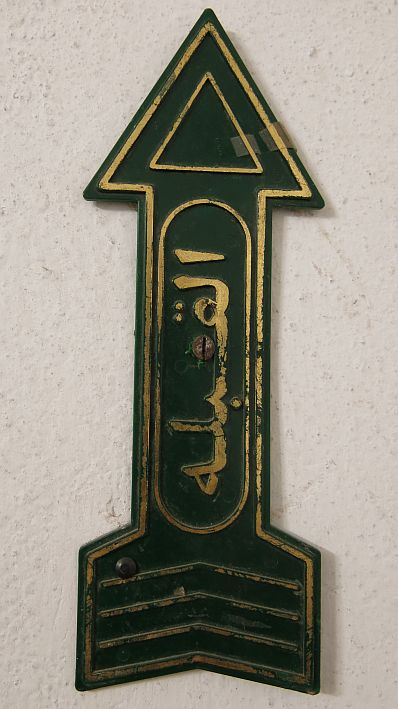
I escaped to an internet cafe and was besieged by dozens of teenagers, all staring at my screen and all of whom attempted to speak to me with the 3 sentences in English which they had learned in school.
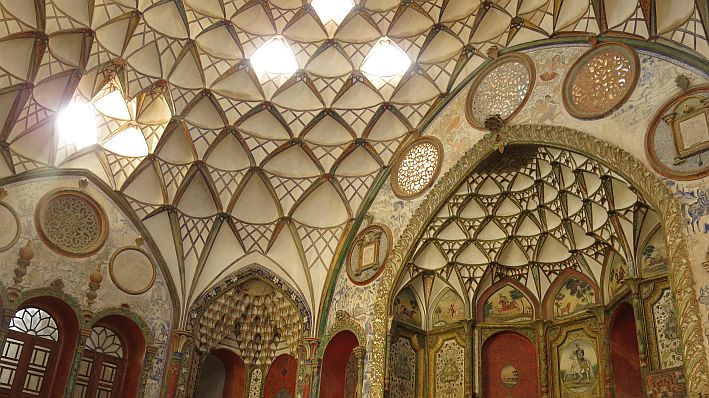
On the street, people keep shouting to me “I love you” and by email I still get messages from male and female Iranians with whom I stayed overnight several months ago which say things like “I miss you, I love you, when are you coming back ?”
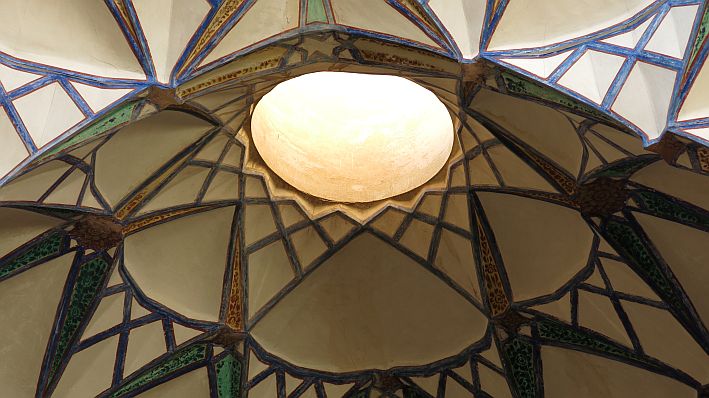
So I was a VIP once again. Welcome back in Iran!
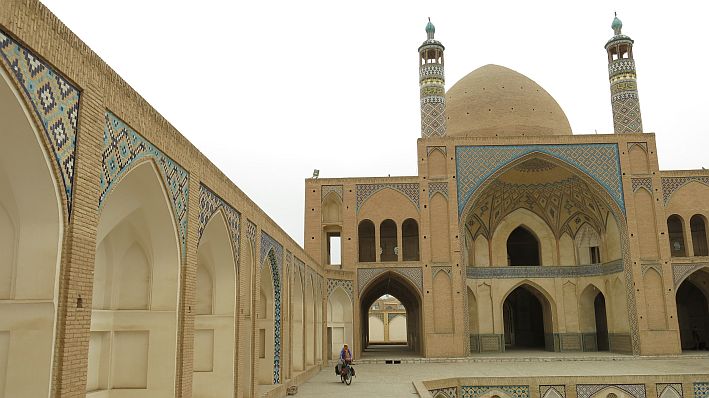
After I had holed up three days in the hotel room, I was feeling better. From then on, I was able to see everything again with humor, because you really need that in Iran.
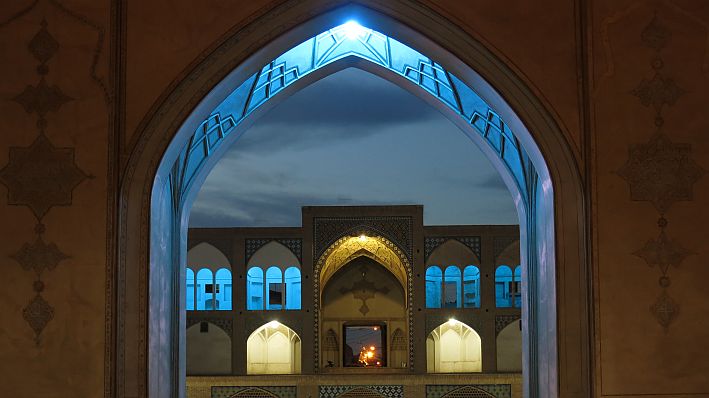
Kashan itself is full of beautiful buildings and the great mosque was especially impressive to me. It is also a very conservative city. Here, I saw even more women dressed in the black chador than elsewhere.
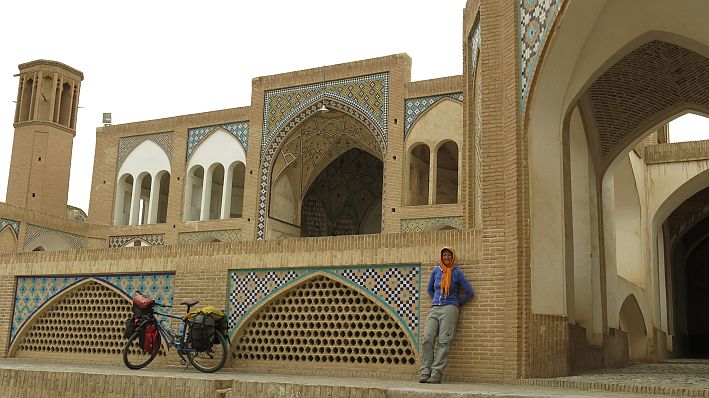
I drove in the rain from Kashan to Aran-va-Bidgol and saw there another beautiful mosque and then, I was able to make it on the same day to a school in Noosh Abad.
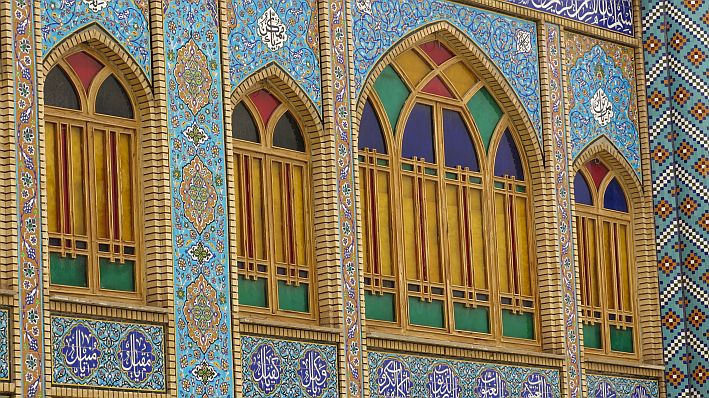
Since it was raining in torrents there, I went inside. I explained to the students how much I liked Iran and what it is like in Germany.
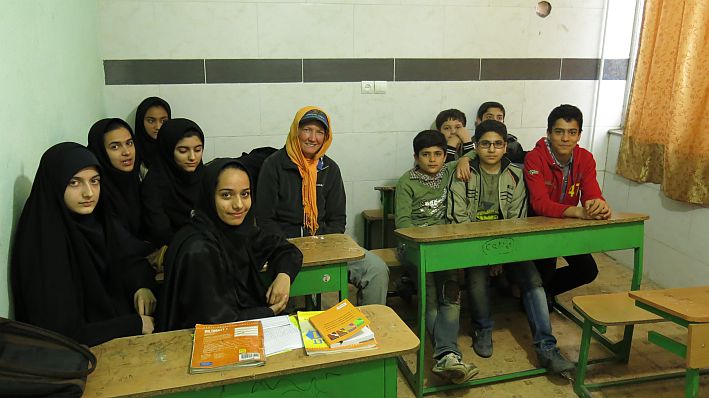
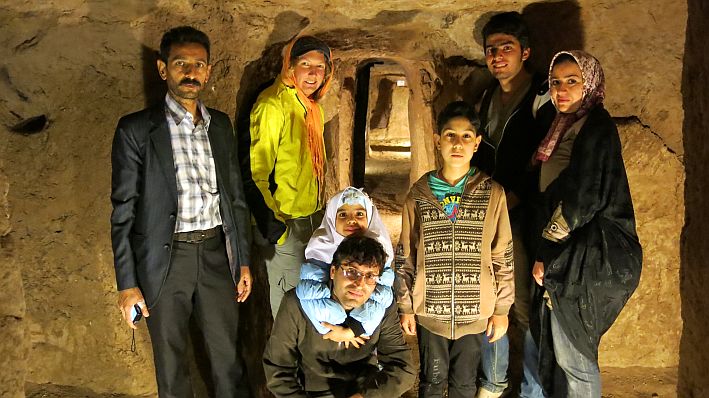
The teacher was able to find a place for me to stay overnight with a family, and dozens of people gave me a private tour of an underground city. The press was also there. I gave the students lot’s of autographs and was photographed by nearly everyone. For a cyclist in Iran, it is never ever boring.
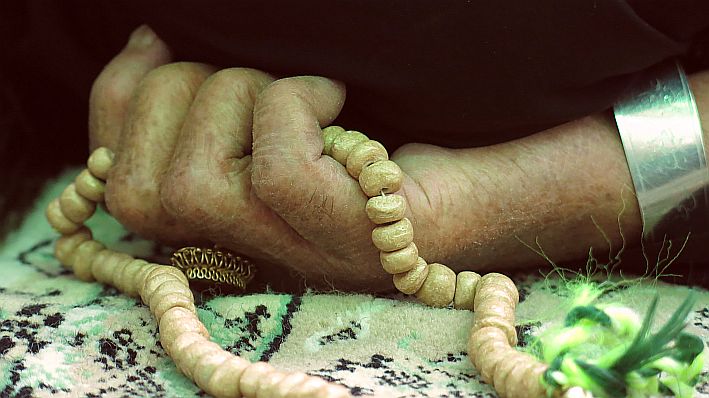
In the evening I became engaged in an interesting political conversation with dozens of people who had come to say hello. As an exception to the rule, this time I spoke openly.

Iranians are very proud of their country, their religion, their history and their magnificent buildings. However, in my opinion, they live too much in the past. They spend time thinking about a lot of philosophers and poets and seem to know a lot about what happened 2000 years ago, more than any other nation I have ever met. It seems that their past is far more important than what is going to happen tomorrow. Besides that, their religion and their personal financial situation seem to be far too much in the forefront.
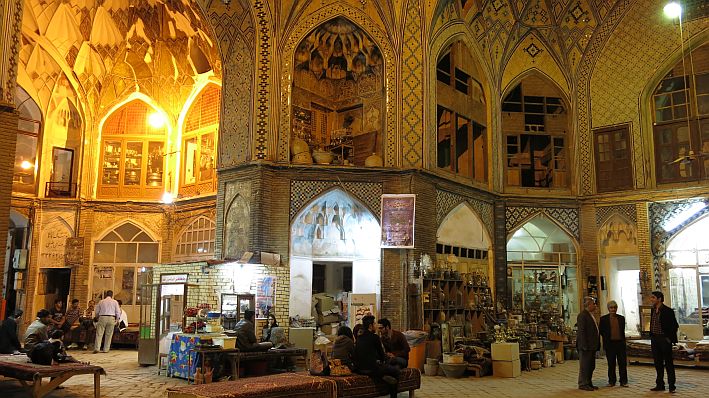
I reached Qom, the second most holy city in the country. A very special atmosphere pervades the city. Mullahs (Muslim scholars) from all over the world, pilgrims and, more than ever, the women all wrapped in black from the tips of their toes to the tip of their nose.
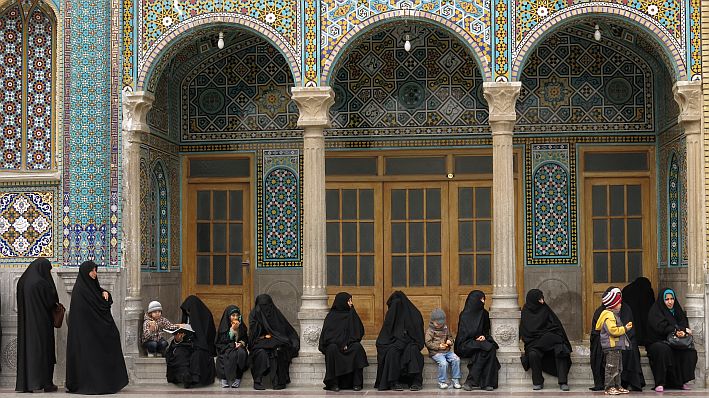
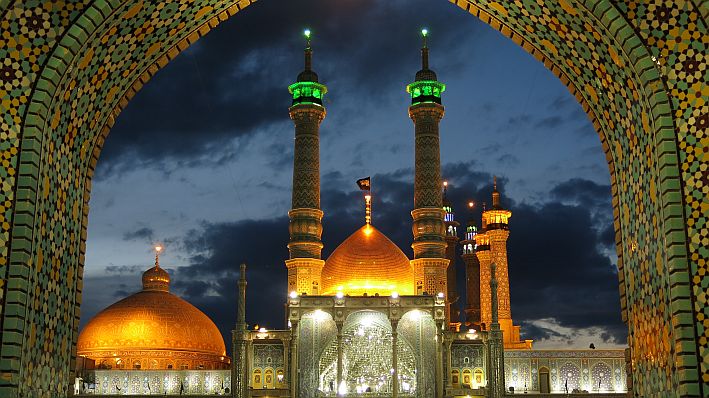
I came at the right time because it was the anniversary of the death of Fatima, Muhammad’s daughter and Ali’s wife, who died tragically at 19 years of age about 1400 years ago.
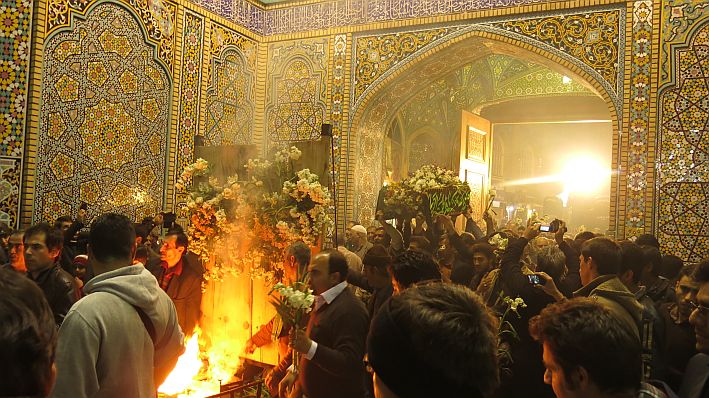
The memorial service was almost frightening, because people, sometimes almost in a trance, were completely beside themselves.
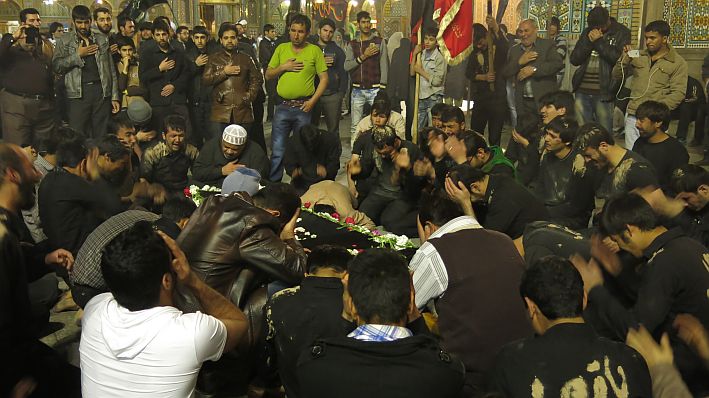
Rows of men and women wept, sang, pounded on their heads and on their chests, and screamed while collapsing.
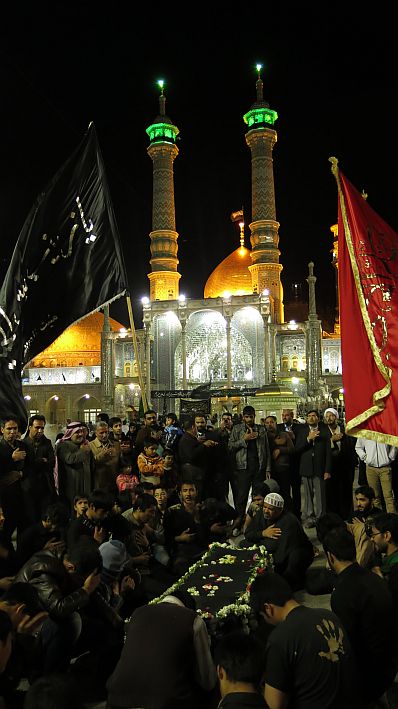
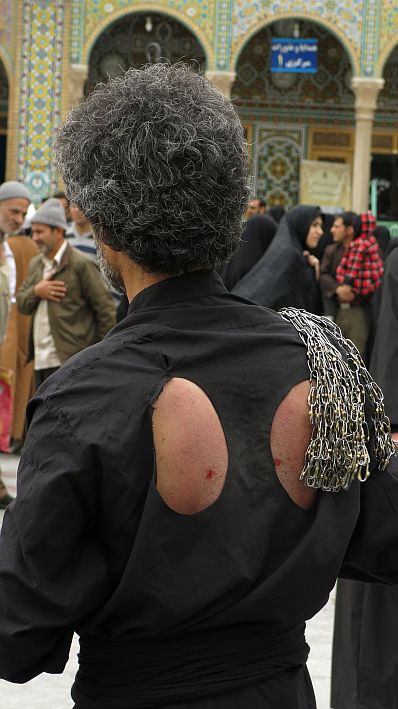
Coffins were symbolically carried throughout the city
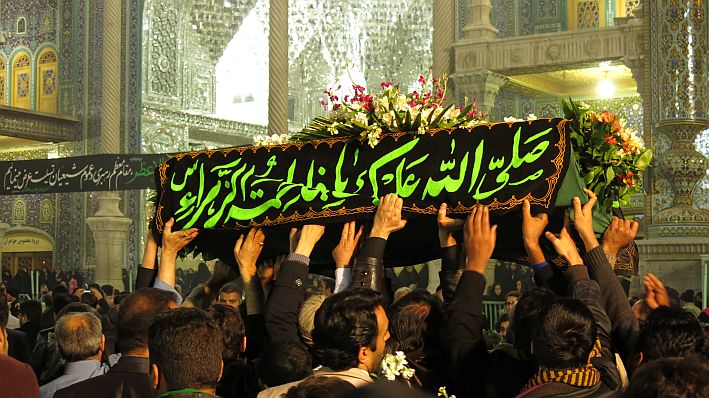
while bands and flag carriers accompanied the ceremony.
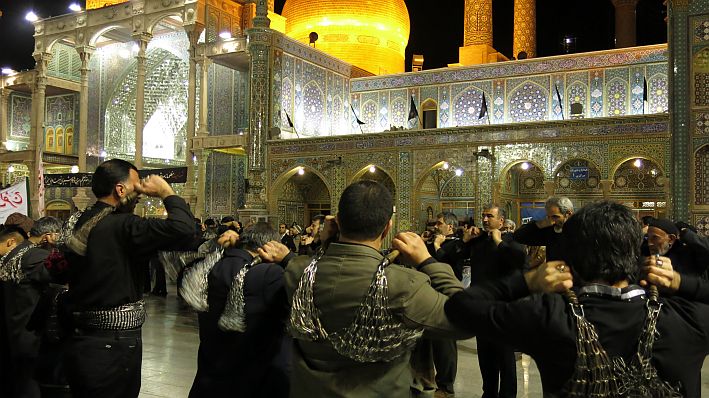
Several times each day people walked to the holy shrine and wept and prayed.
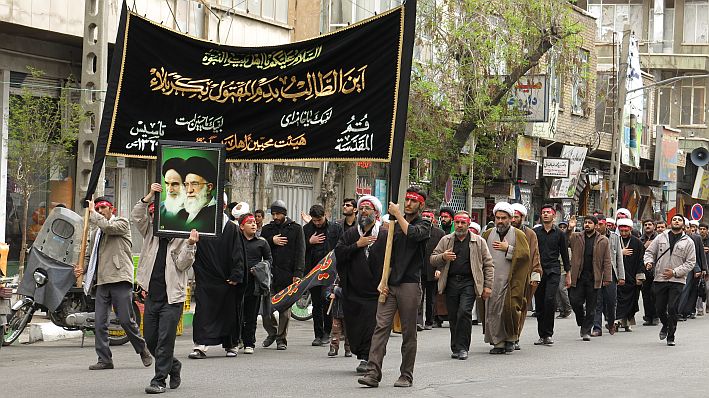
It is really incredible for me to observe how much adults can get so caught up in their religion that they completely lose control over themselves.
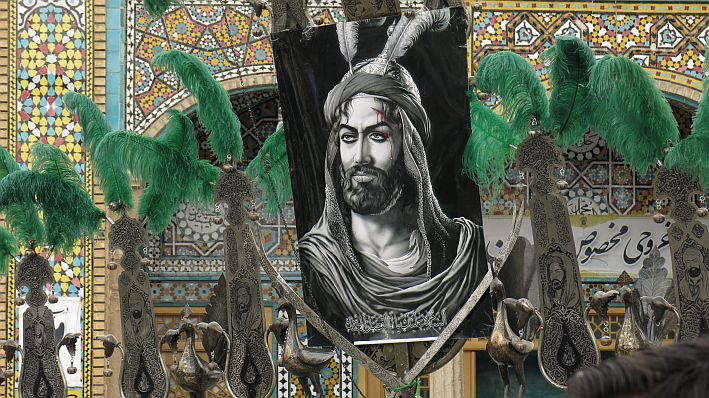
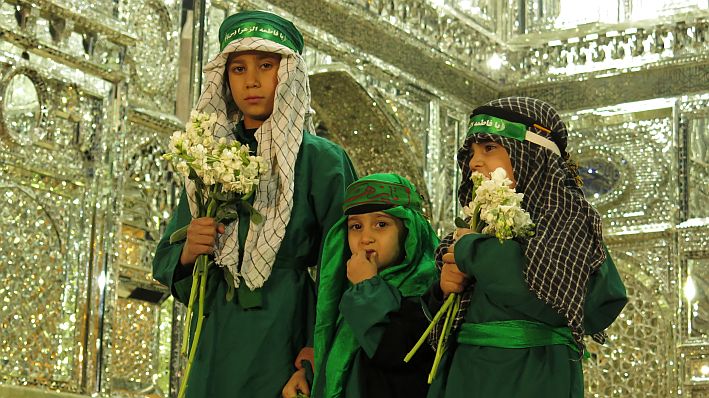
Food and tea was provided at various points cost-free for everyone. The people stood in long lines where the food was being passed out. As always, the men and the women were standing in separate lines.
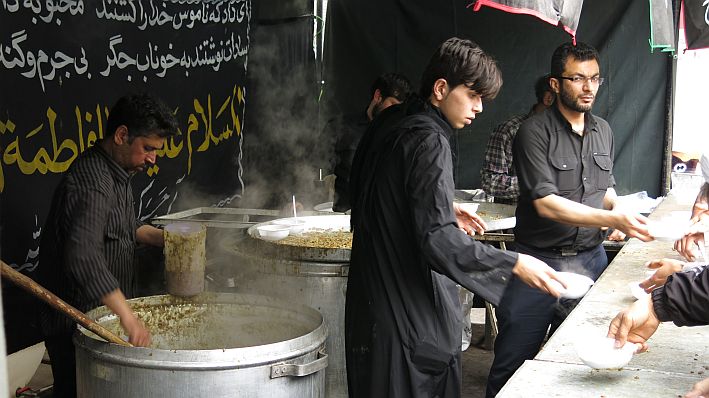
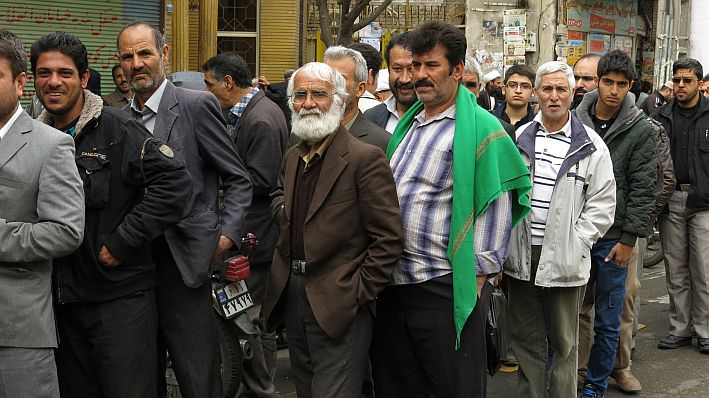
To get on to the grounds where the mosque was located, I also had to wear the chador.
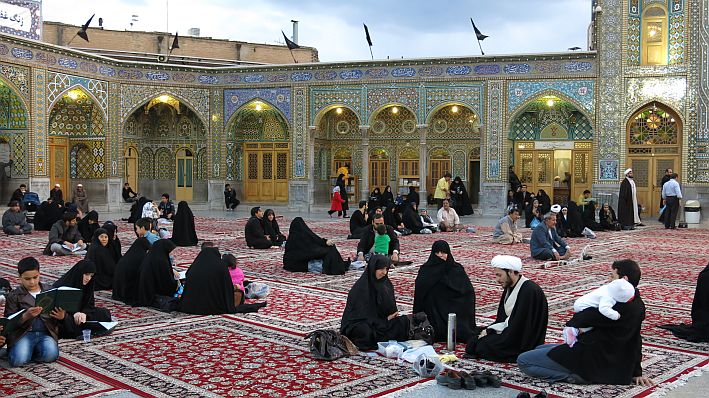
Constantly, people would come up to me and tug on my clothing to show me how I had to wear it. Apparently, too much of my body and my hair was showing.
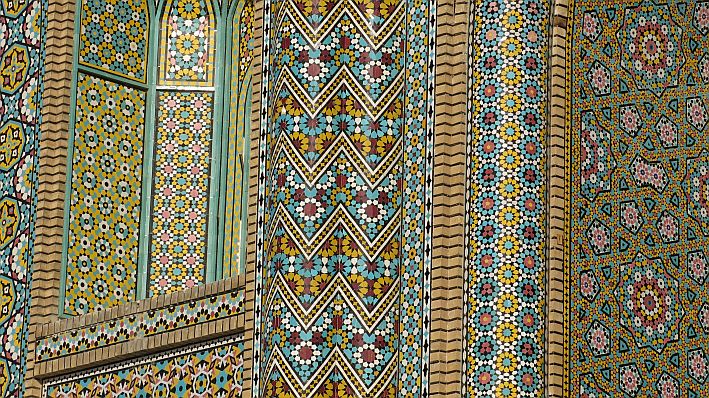
I was not allowed to enter the interior of the shrine because access is only allowed to Muslims, but an Iranian woman was able to convince a guard it was ok (they were positioned at every corner) and smuggled me into the huge interior of the mosque.
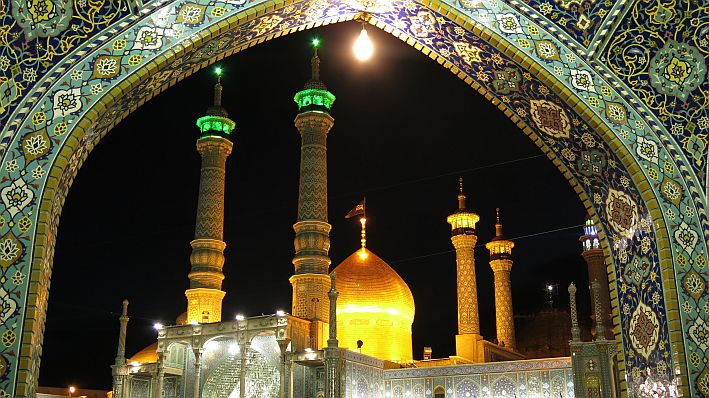
Tremendous commotion prevailed at the holy shrine which, as always, could only be partly seen by the women. The main section is reserved for the men. Cameras are installed everywhere which observe everything that is going on. Especially, the female watchers take their jobs very seriously and blow their whistles every time a woman does something she shouldn’t.
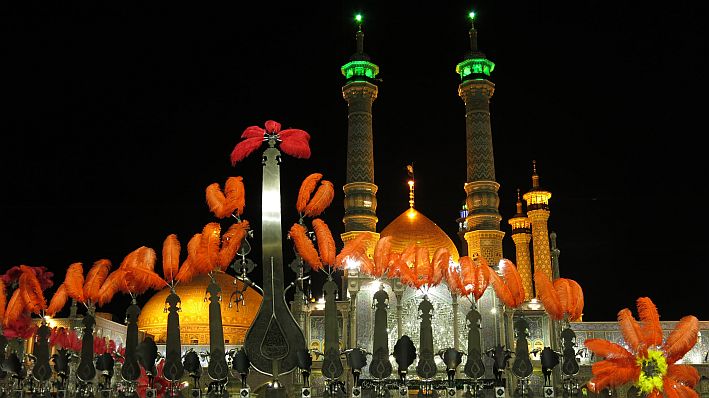
“Where is your husband?” they asked me first of all, as if they would prefer to tell him what I had to do, but they wouldn’t tell me directly. When I told them that I had no husband, they made sure that I went where I was supposed to go. Either I was too close to a group of men or I was in a prohibited area. Also, I wasn’t allowed to photograph as much as I wanted, because they always had an eye on me. On the other hand, the Iranians were constantly photographing anything they wanted — even here on the grounds.
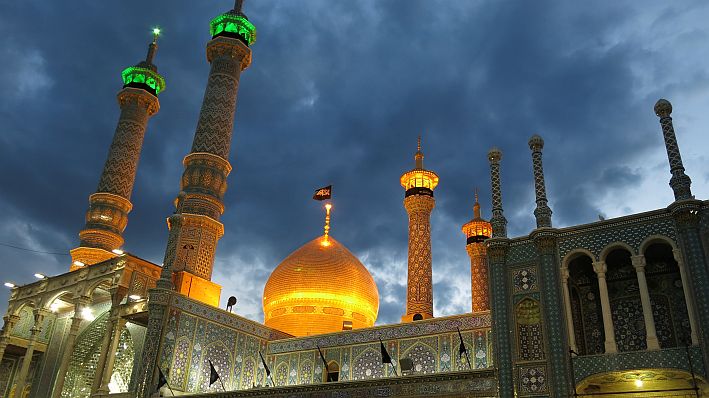
Qom almost reflects the impression that the Western world has about the entire country. Oppression and fanaticism.
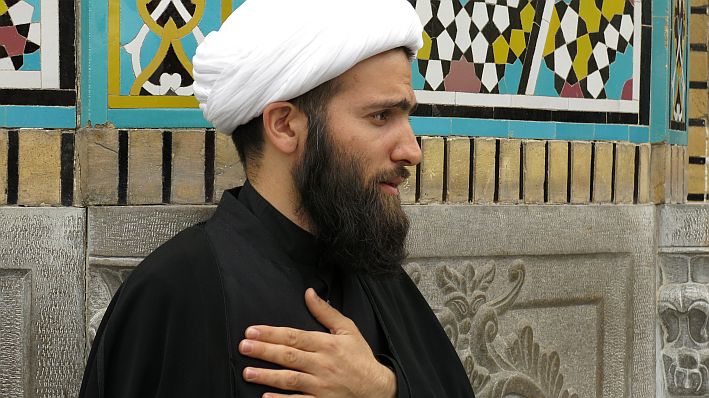
It was interesting for me to see the city, but I didn’t have a good feeling there. It was just too much for me — too extreme. I felt like I was always being watched everywhere I went and I also had the impression that the women were really here only because they had to follow their husbands. The whole city was without joy and without warmth. Everything was either black or dark. The many mullahs which one met went their own way and were serious and heartless. I never met anyone who was really cheerful.
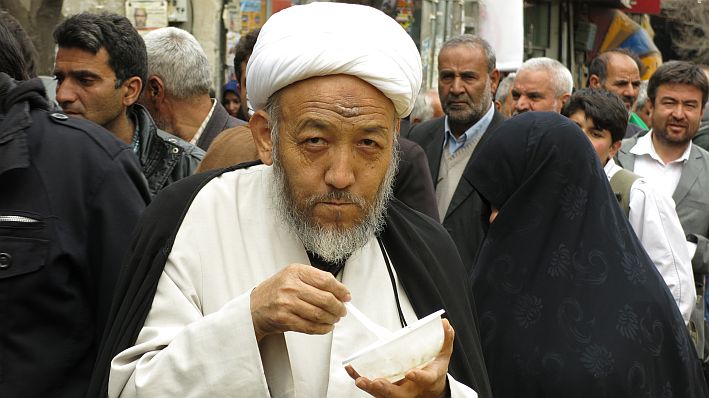
Just in front of the entrance to the shrine. I had a flat tire. I doubt there is a less favorable place than here to fix a flat. The first women that appeared surrounded me and asked where my husband was. “I don’t have a husband; I’m alone.” They asked me “Where is your family?” “No family; I’m here alone.” “But where is your husband?” “I don’t have a husband; I’m alone!” I repeated again. The question came several times until I eventually just stopped responding.
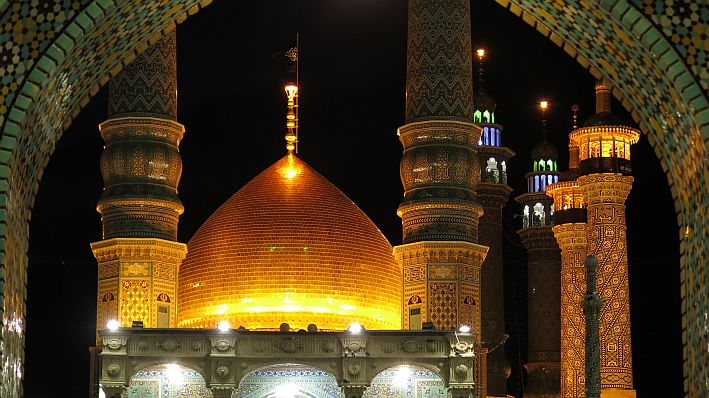
They asked if I needed help. “No thanks I can do this by myself.” “But we can still get a man to help you.” “No thanks! I told you, I can do this by myself.” A few minutes later several men arrived who appeared to be in a contest jostling with each other in an attempt to be the one in the front. Some men even attempted to take the tube out of my hands. I said, “No, please! I can do this alone.” In times like these, you need to have nerves of steel because everyone begins to touch everything. Of course they all mean well. I know that, but it would be much more helpful if they would just accept the fact that a woman is able to handle things by herself.
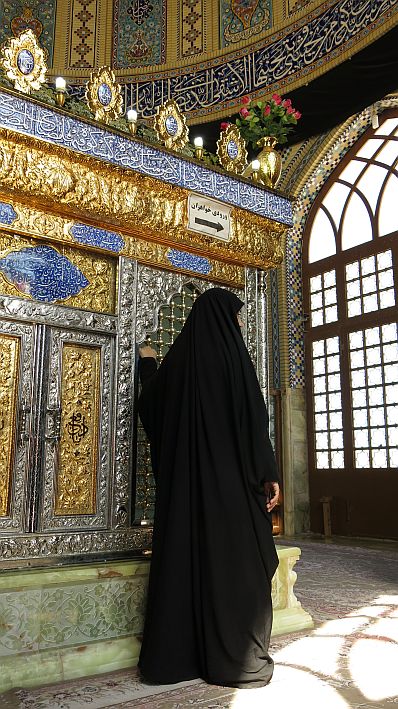
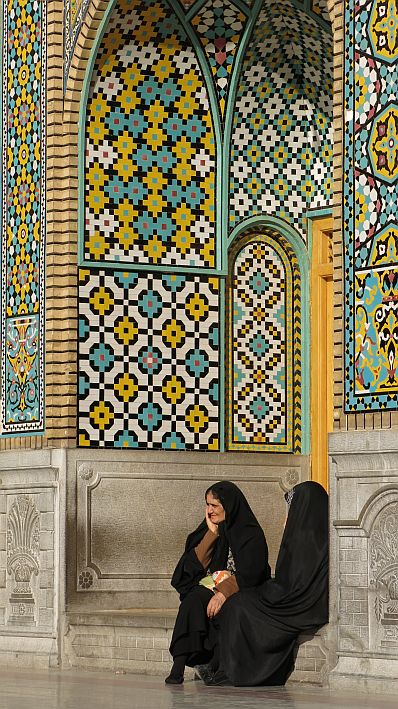
But the culture in Iran is simply imprinted with the belief that a woman is dependent upon her husband.
It also would be much easier for me, if Iranians also understood that “no” means “no”. There’s no question that their concerns were honorable, but at times that was nearly overwhelming.
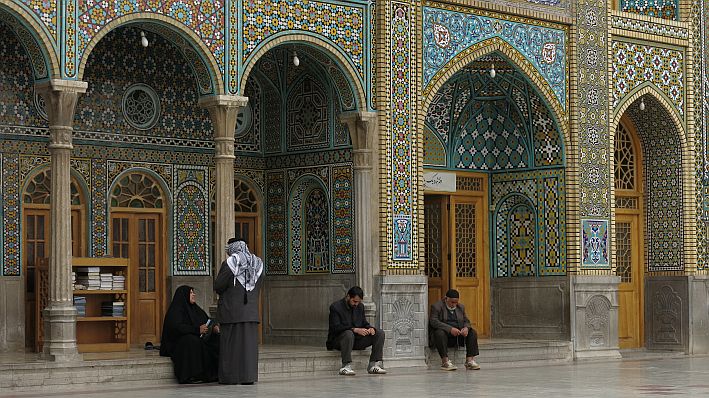
Luckily, the police showed up shortly thereafter and were able to disperse most of the crowd. But the women would not give up. “Where will you stay tonight?” they asked. “I don’t know yet,” I said. They offered to find a hotel for me and said that someone would come soon to take me there. “All you have to do is wait in the mosque. The police can look after the bicycle for you.” At that, I said “No, I want to wait here with my bicycle.” The women replied “But it’s much better to wait in the mosque. It’s warm …..”
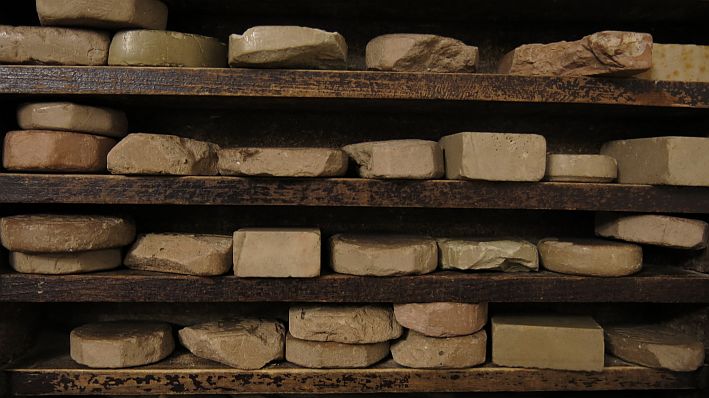
A short time later, I simply got on my bike and rode away because it was just getting to be too much for me.
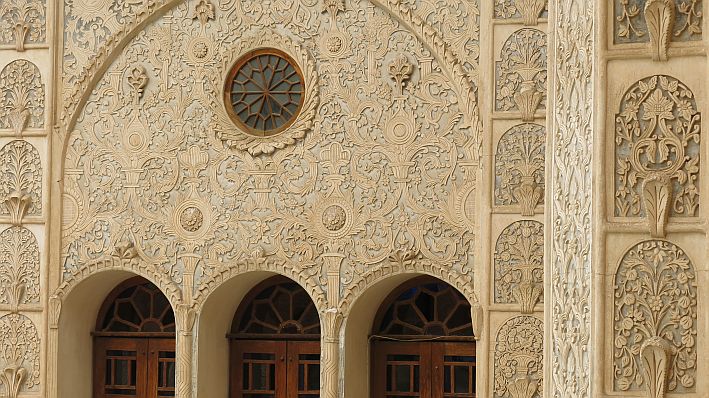
I met an Iranian woman who lived in America for several decades; her two children were also born there. All three have American citizenship. She told me her tragic story which immediately reminded me again of the movie “Not Without My Daughter.”
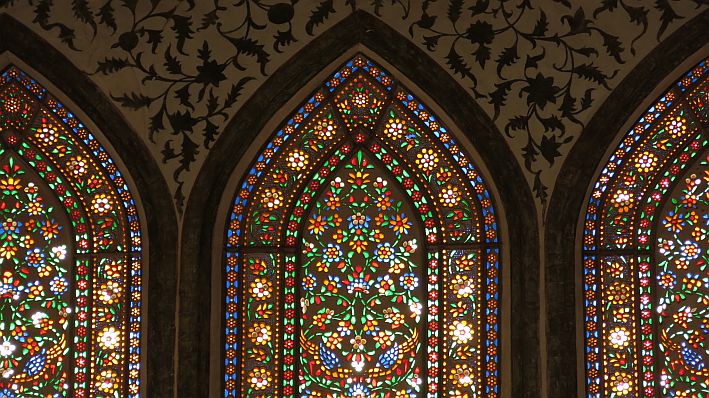
After many years in America, her Iranian husband wanted to visit his family, so they flew to Iran together. They were barely in the country when her husband hid all three of their passports. Ever since, the woman has been trapped in the country. She alone is allowed to leave, but the children are the property of the father, and they are only allowed to leave the country with the father’s permission.
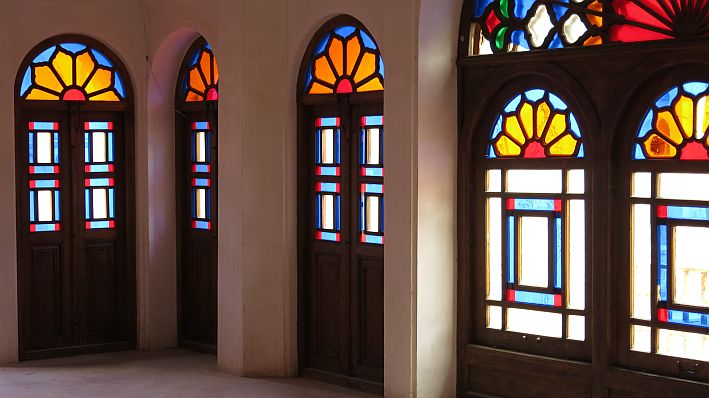
She said “life here in Qom is pure hell.” The telephones are bugged and cameras are everywhere, so the officials can see every step you take. Everything revolves around their religion and her husband is so fanatical that he does not allow her and their children any freedom at all. On top of that, they can’t truly integrate in society because they were accustomed to a completely different lifestyle in the United States. She is attempting somehow to get help and would like to leave the country as soon as possible with the children, but they just do not know how.
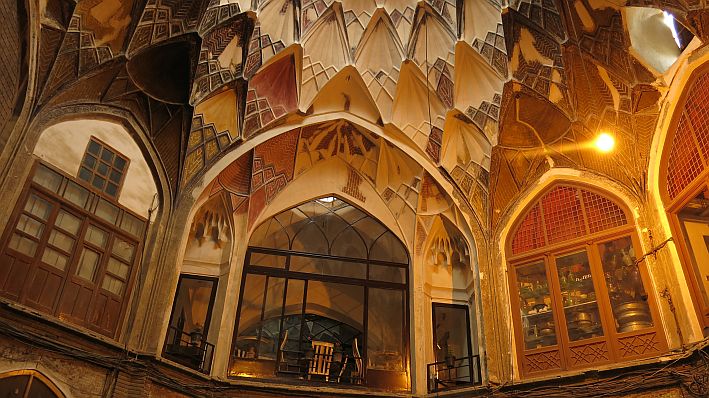
I had heard of a similar fate in December. A 30-year-old German, whose Iranian father had gone back to Iran after divorcing his German wife, invited his son (who, at the time, was 25) to visit him. Shortly after he arrived in Iran, his father took his German passport away from him and obtained an Iranian passport for him.
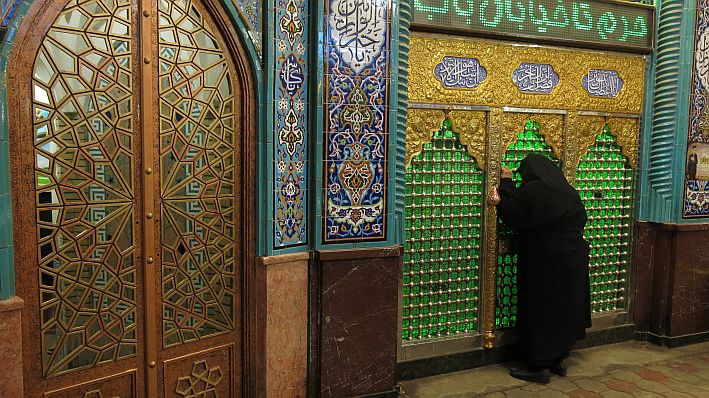
Even though he is actually a German citizen, he has been stuck in Iran for 5 years and cannot prove his citizenship. His German mother has already gone through several lawyers in Germany trying everything possible to bring him back. Numerous times, he went to the German embassy in Tehran, but no one can help him. He is afraid to attempt to escape because if he is rejected at the Turkish / Greek border, he would have to return and the people would make his life miserable for him.

I stayed a few days in his home. He told me I should be careful that no one sees me; otherwise the people would make him leave his apartment because a visit from women, not beeing related to him, is strictly prohibited.
From Qom I continued northeast….more about it next time.
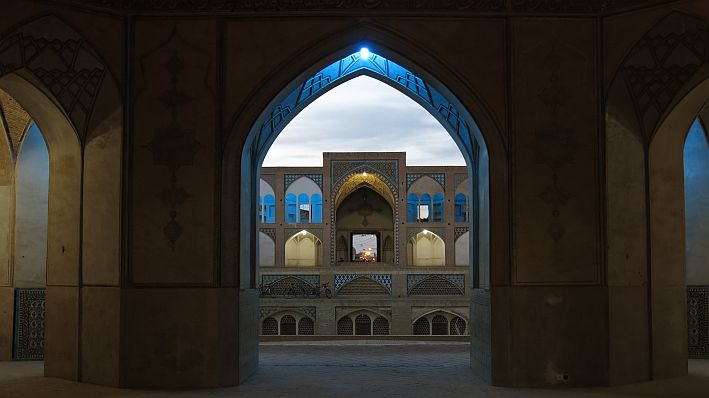
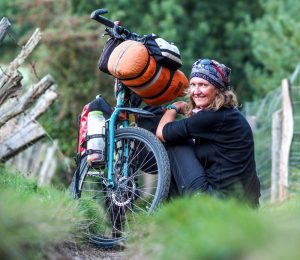












0 Comments